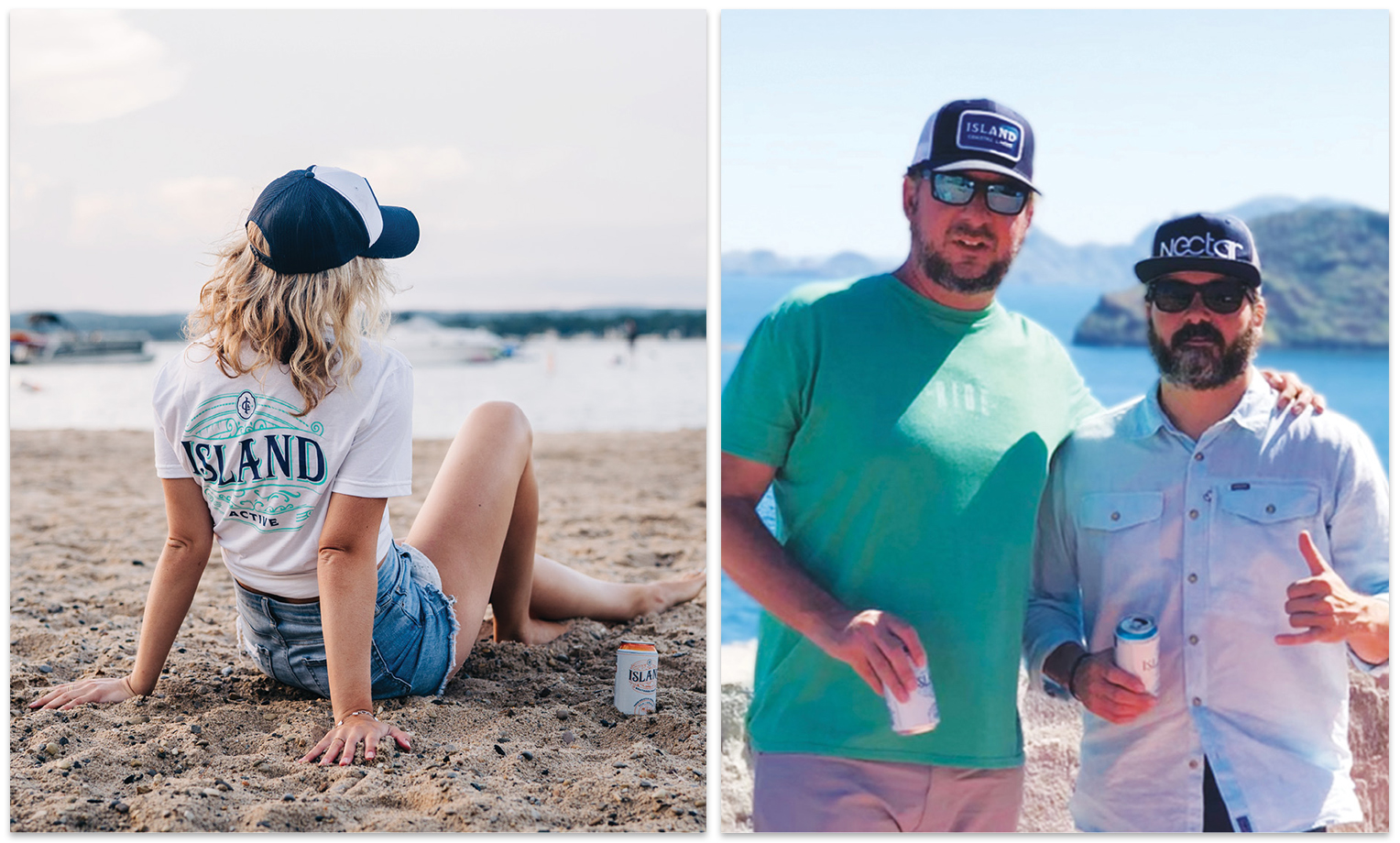Island Brands has grown to a $117-million company in five years

Beer drinkers have never had more options at the grocery store. Yet in an aisle defined by big-name domestics and heavily hopped craft pales, a locally owned lager has become the fastest growing 12-pack in the US, measured by “velocity per outlet.” “In the majority of places, it sells faster than the other products in that space,” explains Island Brands co-founder Scott Hansen, a Citadel grad and entrepreneur who left Wall Street for the Lowcountry in 2002.
Five years ago, Island was an idea born from a sailboat race between Key West and Havana. After finding Cuban beer lacking, Hansen and his business partner, Brandon Perry, were inspired to develop and import a quality brew. Their goal was to drink it when they returned to see the Rolling Stones perform in Havana two months later.
The two developed a lager recipe and Island’s logo and filigree—based on a Cuban cigar wrapper—and produced 280,000 cans. But when they hit a morass of red tape getting their product into Cuba, they pivoted to the domestic market. “Our passion project became, ‘What the heck are we going to do with all of these cans?’” Hansen recalls. The answer came in filling the middle ground between craft brewers focused on high-quality session beers and the major domestic brands cranking out 12-packs sweetened with rice and corn syrups.

(Left) Island Brands recently introduced its Island Active line of low ABV beer, which also comes in lime, mango, and watermelon; (Right) Founders Brandon Perry and Scott Hansen.
The anchor product, Island Coastal Lager, adheres to the Reinheitsgebot, a German purity law that limits ingredients in beer to water, malted barley, yeast, and hops. The company has scaled production quickly via partnerships with beer-specialized co-packers—today, most Island beverages are brewed in Florida. Remote production has also allowed Island Brands to quickly expand its portfolio, including an 88-calorie Island Active line, hard lemonades and teas, and flavored malt beverages. A CBD version (Island Chill) and non-alcoholic brew (Island Free) are in development.
At the laid-back company headquarters at Seabreeze Marina, they’ve also launched the first Island Cabana Bar, a waterfront hideaway serving shrimp rolls and conch fritters. A Key West location, one of several more planned, will open in the next year. The bars complement marketing that includes a branded boat, seaplane, and van, along with crowdfunding campaigns that have raised $4.5 million.
For Hansen, work is life and life is work, but he stays balanced through surf trips with his three kids and a give-back ethos; Island Brand donates one percent of its revenues to nonprofits, and contributed to the restoration of Crab Bank, a local seabird sanctuary.
In May 2022, Island produced as many beers as in the entirety of 2021, with sales expected to increase 250 percent year over year. “Every day I feel like the luckiest guy on the planet, because I’m doing something I love,” says Hansen.
By the Numbers